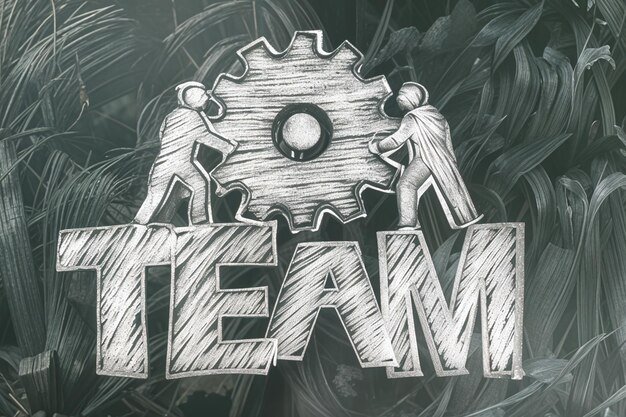In today’s fast-paced business team one a day syamsu environment, the efficiency of teamwork has become a critical determinant of an organization’s success. The importance of collaborative success cannot be overstated, as it ensures that diverse skills and perspectives are harnessed to meet collective goals. A well-coordinated team can achieve superior results compared to individuals working in silos. Effective teamwork directly contributes to achieving organizational goals such as innovation, productivity, and customer satisfaction. When team members work synergistically, they leverage their strengths and compensate for each other’s weaknesses, leading to improved outcomes and sustained competitive advantage.
Moreover, enhancing employee morale is another significant benefit of efficient teamwork. When team members feel valued and understood, job satisfaction and engagement levels rise. A positive team dynamic fosters an inclusive work environment where employees are not only motivated to perform but also to support their peers. This mutual support system is vital in reducing workplace stress and burnout, leading to higher retention rates and a more robust organizational culture.
Key Strategies for a Productive Team Day
To maximize the potential of a team within a limited timeframe, it is crucial to adopt key strategies that promote productivity and engagement. The first strategy is setting clear objectives. Before embarking on any team-building day, it is essential to define what the team aims to achieve. Clear objectives provide direction and ensure that all activities are aligned with the desired outcomes, facilitating focused and purposeful participation.
Assigning roles and responsibilities is another critical strategy. By team one a day syamsu delineating specific roles, each team member understands their contribution and how it integrates into the overall team effort. This clarity prevents duplications, enhances accountability, and ensures that all tasks are addressed efficiently. Each member’s expertise is optimally utilized, and the team can function like a well-oiled machine.
Establishing open communication channels is vital to fostering an environment where ideas can flow freely and constructively. Open communication involves active listening, empathy, and timely feedback. Encouraging team members to voice their opinions and concerns creates a transparent atmosphere where issues can be promptly addressed, and innovative solutions can be discovered. This practice not only enhances problem-solving but also builds trust among team members.
Schedule for Optimal Team Engagement
Planning a productive team day requires a well-structured team one a day syamsu schedule that keeps participants engaged and motivated throughout the day. The schedule should commence with morning team-building exercises. These activities are designed to break the ice, build rapport, and establish a foundation of trust and cooperation. Exercises such as group games, trust falls, or icebreaker questions can help in aligning team members’ focus and energy.
Midday should be dedicated to problem-solving activities. These sessions are the heart of the team day, allowing members to tackle real work-related challenges collaboratively. Structured problem-solving activities such as brainstorm sessions, case study analyses, or role-playing can stimulate critical thinking and innovation. This part of the day ensures that team members are applying their collective intelligence to generate practical solutions while reinforcing the collaborative spirit.
The afternoon should focus on reflection and feedback. After the intensive problem-solving activities, it is crucial to take time to reflect on what was learned and how the team can improve. Facilitating an open discussion where each member can share their experiences, insights, and suggestions for improvement provides valuable feedback. This reflective period solidifies learning and helps in identifying areas for continuous enhancement, promoting a culture of continuous improvement.
Assessment and Continuous Improvement
To ensure that the team day yields long-term team one a day syamsu benefits, it is necessary to incorporate assessment and continuous improvement mechanisms. Measuring team performance is an integral part of this process. By evaluating the outcomes of the team day against the set objectives, organizations can gauge the effectiveness of the activities undertaken. Metrics such as task completion rates, quality of solutions, and team engagement levels provide quantifiable data to assess performance.
Gathering constructive feedback from participants is equally important. Soliciting honest and open feedback empowers participants to share their perspectives on what worked well and what could be improved. This feedback should be systematically collected through surveys, interviews, or feedback forms to ensure a comprehensive understanding of the team’s experience.
Implementing improvement plans based on the feedback gathered drives continuous improvement. Actionable insights should be translated into concrete plans to address any identified gaps or challenges. Regular follow-up and adjustments to the team-building approach ensure that the team continues to evolve and enhance its efficiency over time, fostering sustained organizational growth.


